Ender Özcan
Metaheuristics "In the Large"
Dec 18, 2020Abstract:Following decades of sustained improvement, metaheuristics are one of the great success stories of optimization research. However, in order for research in metaheuristics to avoid fragmentation and a lack of reproducibility, there is a pressing need for stronger scientific and computational infrastructure to support the development, analysis and comparison of new approaches. We argue that, via principled choice of infrastructure support, the field can pursue a higher level of scientific enquiry. We describe our vision and report on progress, showing how the adoption of common protocols for all metaheuristics can help liberate the potential of the field, easing the exploration of the design space of metaheuristics.
L2AE-D: Learning to Aggregate Embeddings for Few-shot Learning with Meta-level Dropout
Apr 08, 2019
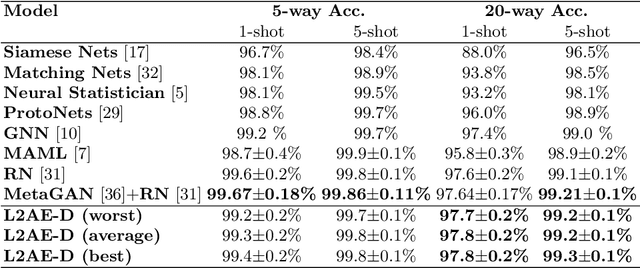
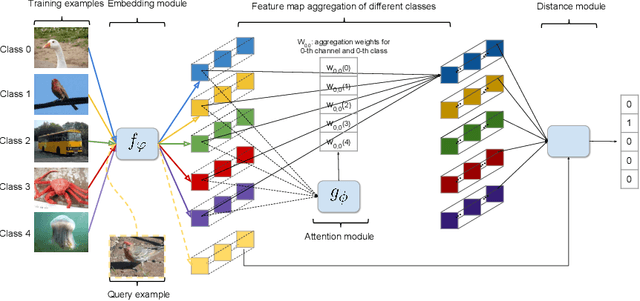
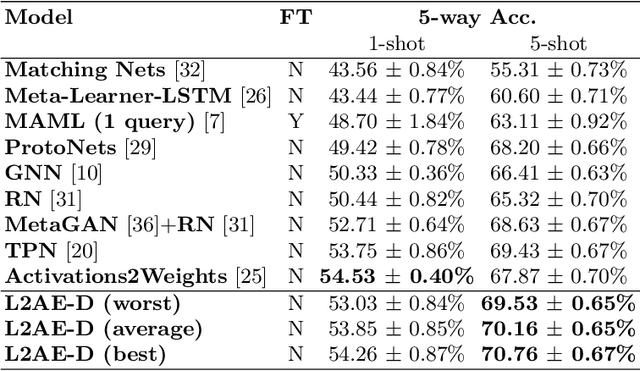
Abstract:Few-shot learning focuses on learning a new visual concept with very limited labelled examples. A successful approach to tackle this problem is to compare the similarity between examples in a learned metric space based on convolutional neural networks. However, existing methods typically suffer from meta-level overfitting due to the limited amount of training tasks and do not normally consider the importance of the convolutional features of different examples within the same channel. To address these limitations, we make the following two contributions: (a) We propose a novel meta-learning approach for aggregating useful convolutional features and suppressing noisy ones based on a channel-wise attention mechanism to improve class representations. The proposed model does not require fine-tuning and can be trained in an end-to-end manner. The main novelty lies in incorporating a shared weight generation module that learns to assign different weights to the feature maps of different examples within the same channel. (b) We also introduce a simple meta-level dropout technique that reduces meta-level overfitting in several few-shot learning approaches. In our experiments, we find that this simple technique significantly improves the performance of the proposed method as well as various state-of-the-art meta-learning algorithms. Applying our method to few-shot image recognition using Omniglot and miniImageNet datasets shows that it is capable of delivering a state-of-the-art classification performance.
Combining Monte-Carlo and Hyper-heuristic methods for the Multi-mode Resource-constrained Multi-project Scheduling Problem
Sep 08, 2016
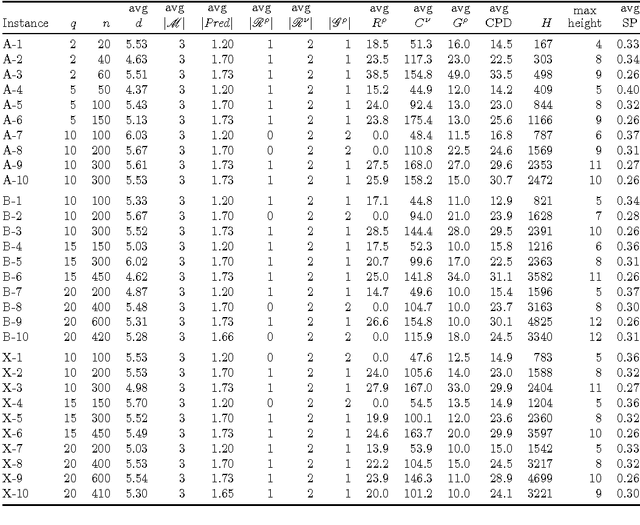
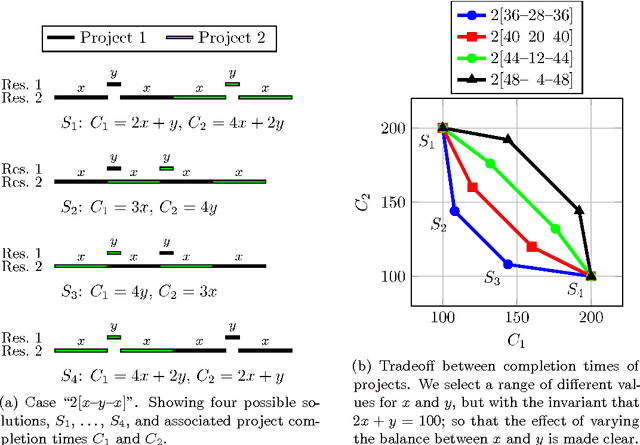

Abstract:Multi-mode resource and precedence-constrained project scheduling is a well-known challenging real-world optimisation problem. An important variant of the problem requires scheduling of activities for multiple projects considering availability of local and global resources while respecting a range of constraints. A critical aspect of the benchmarks addressed in this paper is that the primary objective is to minimise the sum of the project completion times, with the usual makespan minimisation as a secondary objective. We observe that this leads to an expected different overall structure of good solutions and discuss the effects this has on the algorithm design. This paper presents a carefully designed hybrid of Monte-Carlo tree search, novel neighbourhood moves, memetic algorithms, and hyper-heuristic methods. The implementation is also engineered to increase the speed with which iterations are performed, and to exploit the computing power of multicore machines. Empirical evaluation shows that the resulting information-sharing multi-component algorithm significantly outperforms other solvers on a set of "hidden" instances, i.e. instances not available at the algorithm design phase.
 Add to Chrome
Add to Chrome Add to Firefox
Add to Firefox Add to Edge
Add to Edge